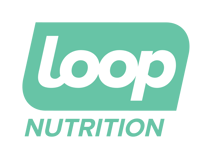Why Protein Becomes More Important With Age
Protein is a big buzzword right now when it comes to ‘healthy eating’. While most of us associate it with muscle growth, its role becomes even more important as we navigate changes in metabolism, strength, and overall health with age.
If you’re trying to maintain your strength and mobility, support your immune system, or boost your energy to stay ready for life’s adventures, getting enough protein can make a huge difference.
Laura Gayowski, a registered dietitian, is here to explain why prioritizing protein is essential to our changing bodies, how much you truly need, and some simple strategies to make it a seamless part of your daily routine!
Why Protein Is More Important As We Age
Aging brings natural shifts in how our bodies process nutrients. Here’s a quick breakdown of the big things happening and how proper protein intake helps us:
Combating Muscle Loss (Sarcopenia)
After 30, muscle mass declines by 3–8% per decade. Protein, paired with strength training, helps slow muscle loss, preserving your body’s strength and mobility. Without it, everyday tasks, like lifting groceries or climbing stairs, become more difficult. Having adequate muscle mass can also help you maintain mobility throughout your life, helping to prevent falls and fractures.
Supporting Bone Health
Protein isn’t just for your muscles. It also helps support bone density by contributing to bone formation. It may have the potential to indirectly increase calcium absorption, although more research is needed. This is especially important post-menopause, when estrogen declines, causing a drop in bone density.
Boosting Immunity & Healing
Protein provides the body with amino acids, which are the building blocks of bodily tissues, peptide hormones, antibodies, and more. Protein can support recovery from injuries or illnesses by creating antibodies to fight infections and synthesizing collagen to build new skin and connective tissue. Even minor cuts or infections take longer to heal when protein intake is low!
Managing Weight & Metabolism
Protein is the most satiating macronutrient and can help keep you full for long periods of time. It slows down digestion and increases the production of GLP-1 hormone, too! Protein can also help curb cravings and stabilize blood sugar by providing you with sustained energy over multiple hours, which means you won’t be thinking about food all day or accidentally overeat.
How Much Protein Do You Need to Be Eating?
You’ve likely heard the old guideline of “0.8g of protein per kilogram of body weight.” While that’s a starting point, newer research shows most adults over 50 benefit from more protein to truly feel their best, not just meet their body’s basic needs.
Here’s what I recommend based on science and real-world results:
- Aim for 1.2–2.0g of protein per kilogram daily (or 0.5–0.9g per pound).
- Spread it out: Your body uses protein best when you consume 25–35g at each meal, not all in one sitting.
Why the shift? Higher protein helps counteract age-related muscle loss, keeps energy steady, and supports metabolic health. It’s not about “overdoing it”, it’s about giving your body the tools it needs to age strong and with grace!
Easy Ways to Eat More Protein Daily
You don’t need to reinvent your diet to get more protein. Instead, think of it as enhancing meals and snacks you already love with small, satisfying tweaks.
Here’s how to get a little extra protein without overcomplicating things:
Upgraded Morning Staples
- Oatmeal: Stir in a spoonful of nut butter or swirl in Greek yogurt for creaminess. Top with hemp seeds (3g protein per tablespoon) for a crunchy boost.
- Toast: Try smashed avocado with a sliced hard-boiled egg, or ricotta and berries on whole-grain bread.
- Eggs: Add cottage cheese to scrambled eggs. It melts in seamlessly, adding 14g of protein per ½ cup.
Snacks That Actually Keep You Full
- Fruit Pairings: Apples with almonds (6g per ounce) or celery with hummus (2–3g per tablespoon).
- Savory Fix: Toss popcorn with Parmesan (10g per ¼ cup) or roasted chickpeas (6g per ⅓ cup).
- Quick Bites: Roasted edamame (14g per ¼ cup) or sliced turkey (5g per ounce) are perfect for busy days.
Plant-Based Boosts
- Soups: Blend canned white beans (15g per cup) into soups for creaminess and some extra protein.
- Pasta: Lentil or chickpea pasta (13–25g per serving) works in any recipe.
- Stir-Fry: Throw frozen edamame (17g per cup) or tofu cubes (10g per ½ cup) straight from the freezer.
Desserts With a Protein Punch
- Chia Pudding: Mix chia seeds with milk and top with ricotta (14g per ½ cup) or crushed walnuts.
- Chocolate Mousse: Blend silken tofu (10g per ½ cup) with cocoa and honey. It’s richer than you’d expect!
- Yogurt Bowl: Layer Greek yogurt (17g per cup) with berries and dark chocolate shavings.
Prep for Effortless Meals
- Batch-Cook Basics: Roast chicken thighs (26g each) or cook quinoa (8g per cup) ahead of time to keep in the fridge for easy meals.
- Canned Food Staples: Keep salmon (20g per can), black beans (15g per cup), or lentils (18g per cup) on hand for nights you forget to take the meat out to defrost.
- Simple Add-Ons: Sprinkle seeds on salads, stir beans into rice, or add cheese to sandwiches for a quick protein boost with minimal effort!
The Bigger Picture: Why This Matters for Aging Well
Changing or following a new diet in this stage isn’t about “fixing” yourself; it’s about giving your body the resources it needs to function properly. In my practice, I’ve seen:
- Better blood sugar control (even for prediabetes)
- Less joint stiffness (hello, morning walks without creaking!)
- Improved energy (no more 3 p.m. brain fog)
- Increased confidence because feeling strong impacts everything!
But here’s what I tell all my clients: Perfection isn’t the goal. Miss your target by 10g today? Don’t stress about it. Consistency is what pays off and gets you those results!
Final Thoughts
Getting enough protein in your diet doesn’t have to be complicated. By making some simple changes and staying active, you’ll not only support your muscle health but also boost your overall energy and well-being!
→ For personalized tips on how to improve your protein intake and overall health, book an appointment with one of our nutrition experts here!









.jpg)
